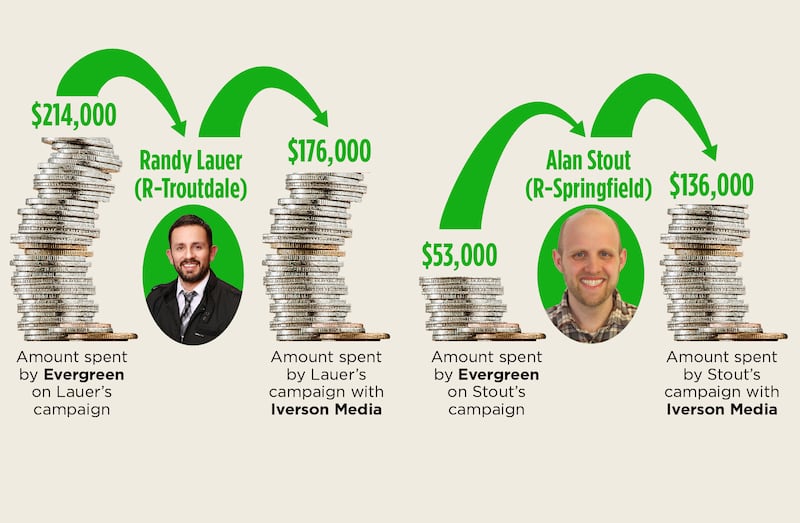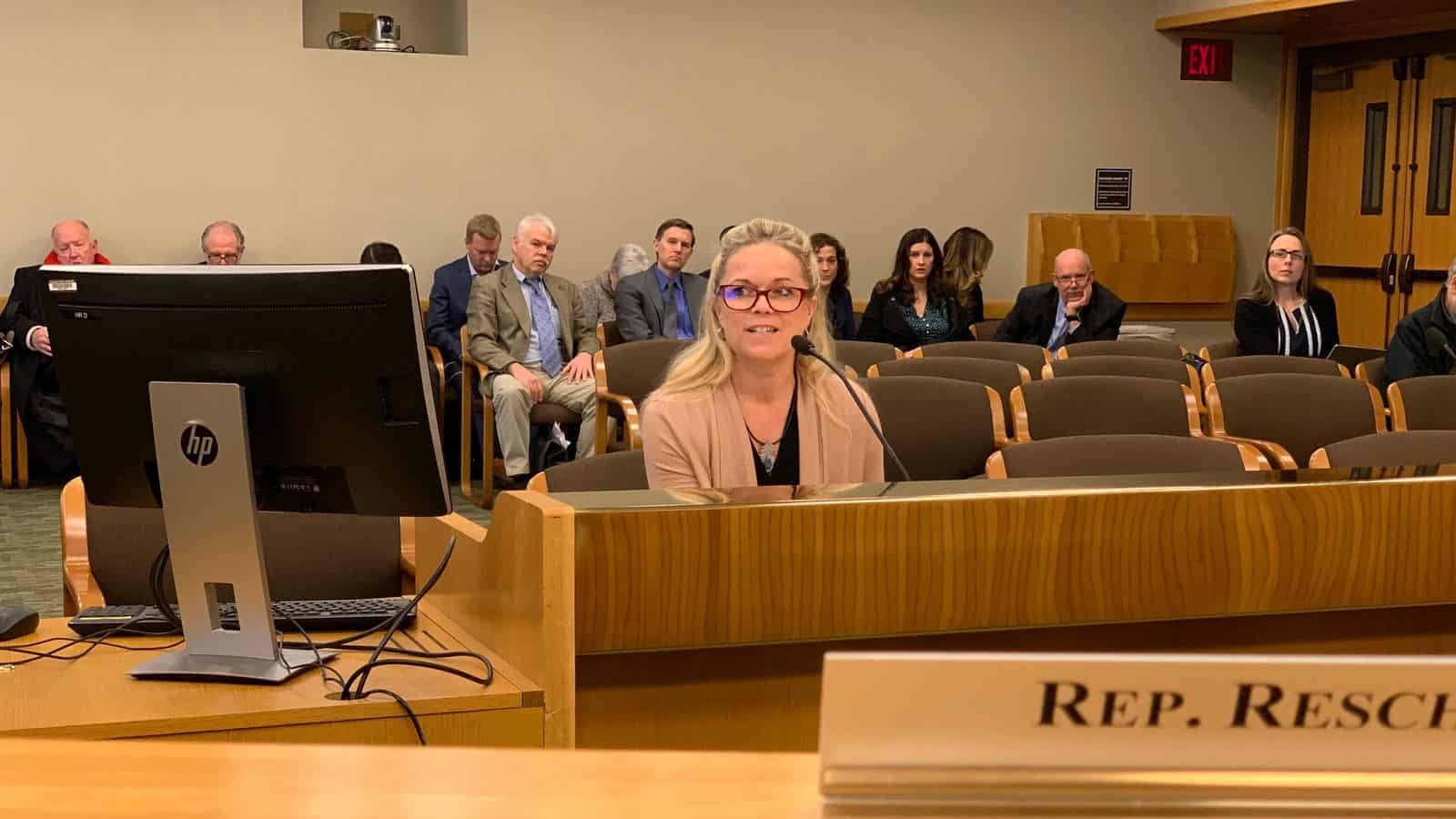Since state Rep. Vikki Breese-Iverson (R-Prineville) became Oregon House minority leader on Nov. 30, 2021, the amount of campaign money flowing to the political strategy firm her husband owns has soared.
Much of the money secured by the Iverson Media Group in the current election cycle comes from political action committees that Breese-Iverson controls directly or indirectly because she also funds House campaigns as caucus leader.
Oregon ethics laws prohibit public officials from using their positions for private benefit “if the financial gain or avoidance of financial detriment would not otherwise be available but for the public official’s holding of the official position or office.”
In this case, the gain would come from Breese-Iverson using her official position to steer spending to her husband’s firm, which buys ads and performs other campaign services.
“That sure doesn’t smell right,” says Kate Titus, executive director of the watchdog group Common Cause of Oregon.
Breese-Iverson says she’s done nothing wrong. “I do not believe ethics laws were violated,” she replied in a response to written questions.
When Breese-Iverson replaced former state Rep. Christine Drazan (R-Canby) as caucus leader last year, records show she also took control of the caucus’s political action committee, Evergreen Oregon, as is customary for a caucus leader.
She also controls her own campaign PAC, Friends of Vikki, and is co-director of the AG First PAC. Collectively, these PACs have spent $193,000 with Iverson Media Group this year. Friends of Vikki also spent $47,000 with Iverson Media in the previous two years, making the total direct spending with her husband’s company $250,000.
As caucus leader, Breese-Iverson is responsible for deciding how Evergreen will allocate money to House candidates.

Since Oregon began keeping electronic campaign spending records in 2007, clients have spent $2.04 million with Iverson Media. But that spending has increased dramatically recently—$1.6 million of it came since Vikki Breese-Iverson ascended to minority leader last November.
Breese-Iverson explains that her husband, Bryan Iverson, has been involved in political campaigns for nearly 20 years and that he and his company ramped up activity after helping state Sen. Dick Anderson (R-Lincoln City) win a close race in 2020.
“His marketing firm has been in business since 2005, and he has been a media buyer for large companies in and around Oregon before that,” Breese-Iverson says. “His qualifications, experience and success speak for themselves.” (In her financial disclosure filings with the state, Breese-Iverson listed herself as a “shareholder” in Iverson Media in 2020. In 2021 and 2022, she reported that her husband owned the company.)
Bryan Iverson attributes the increase to changing family circumstances and his work on Anderson’s victorious Senate race in 2020.
“I think Vikki being back in the building is more of a coincidence,” he says (before running for the House in 2020, Breese-Iverson worked as a House staffer). “It’s more about our kids growing up and me having more time.”
Indeed, records show that most of the $1.6 million various campaigns paid Iverson Media over the past year came from Senate Republican campaigns. The Senate spending is not an ethics issue because Senate Minority Leader Tim Knopp (R-Bend) directs it.
But more than a half-million of it comes from PACs over which Vikki Breese-Iverson exerts some or total control.
“It’s quite plausible that the representative didn’t intend to use her position to gain a financial advantage for her family business,” Titus says. “But whether or not she played any role soliciting the new business, it’s still a conflict to accept that financial advantage.”
The issue of whether public officials are using their positions for private gain is one that the Oregon Government Ethics Commission examines regularly.
In 2019, records show that state Rep. Kim Wallan (R-Medford), who is now Breese-Iverson’s deputy, sought advice from commission staff on whether she could pay her daughter’s ad agency to produce an end-of-session mailer and rent office space from her husband’s company.
Ethics Commission director Ron Bersin told Wallan in written advice June 7, 2019, that both expenditures Wallan contemplated would appear to violate ethics laws because they would “confer a financial benefit on those businesses that would not be available but for your position.”
